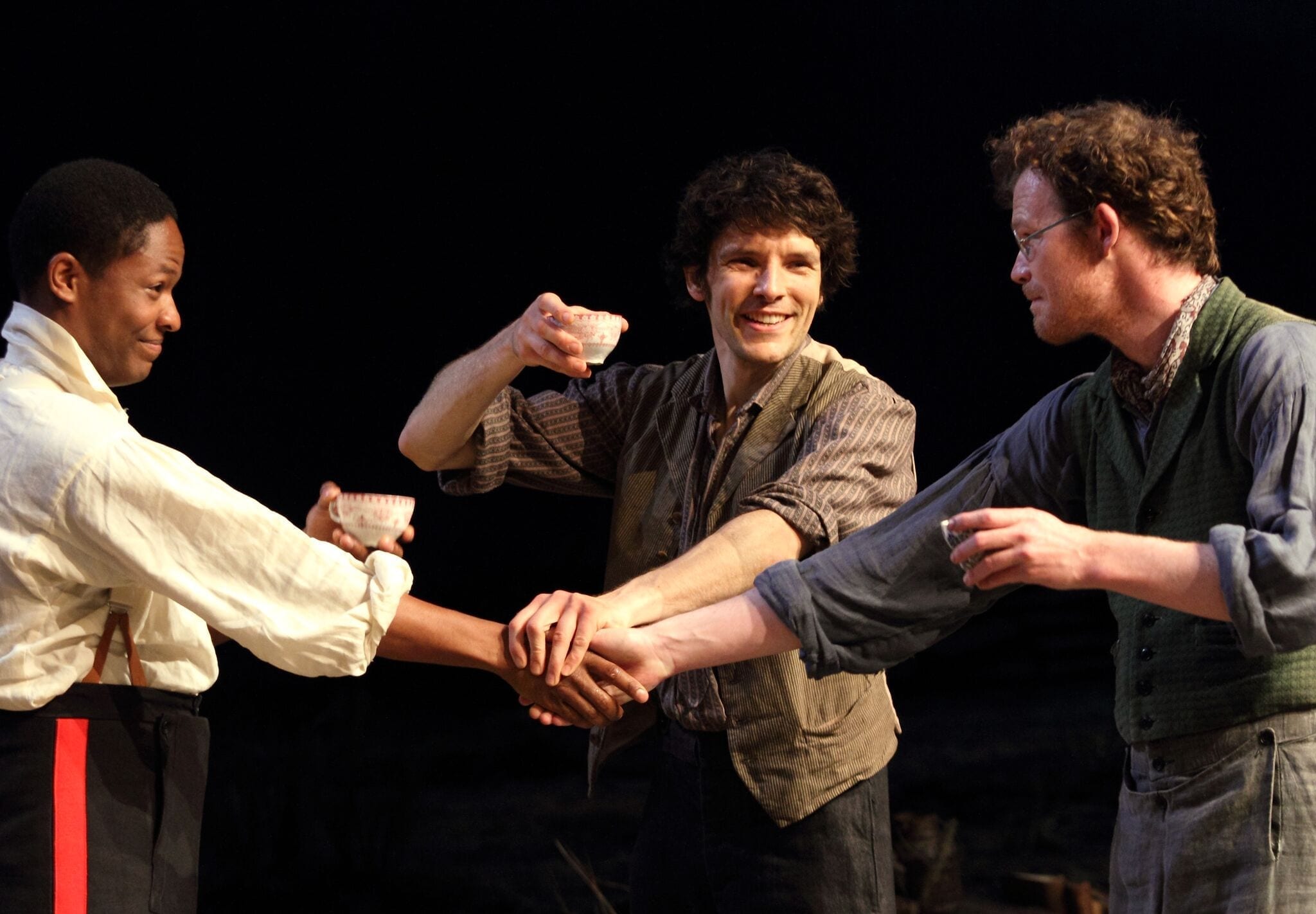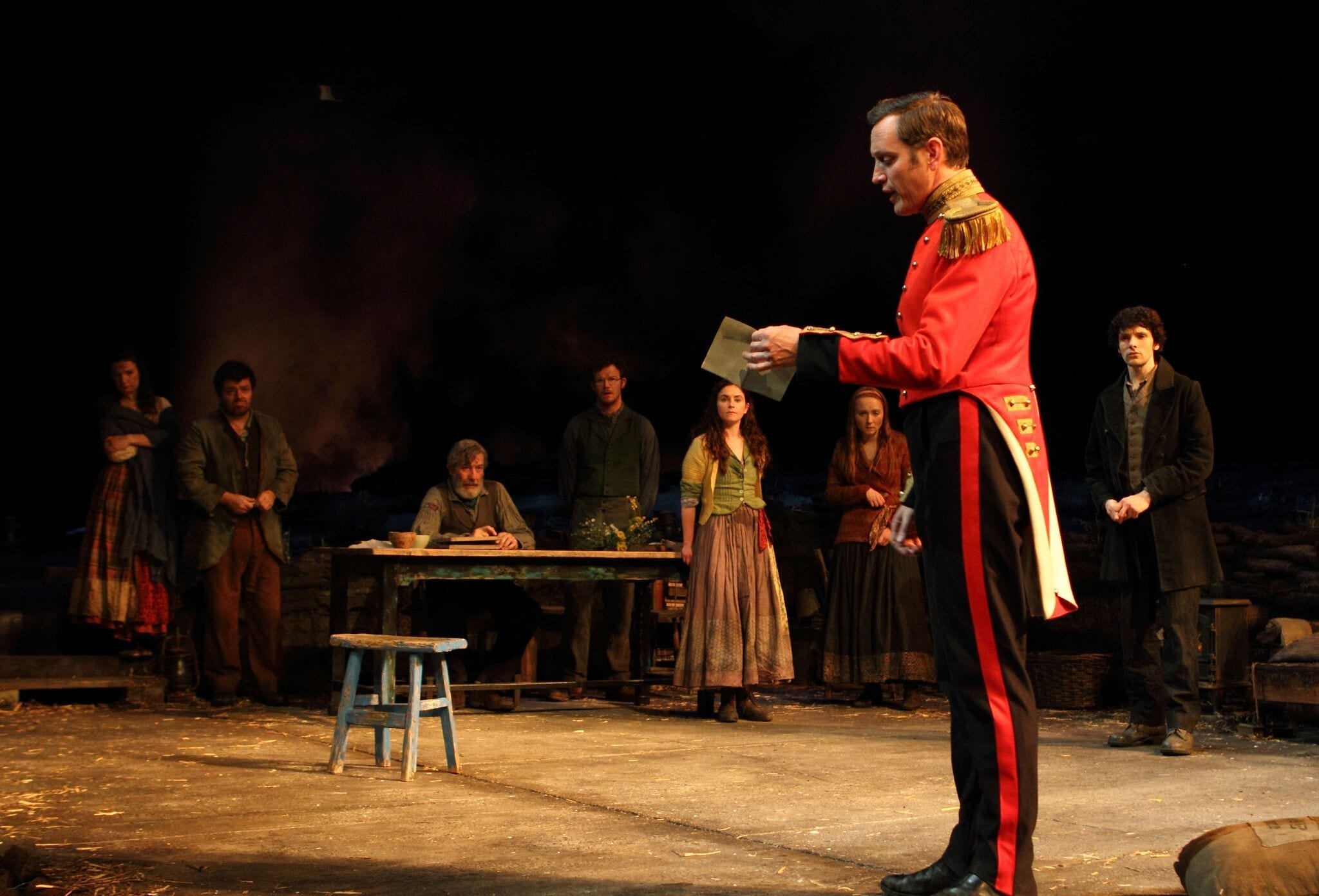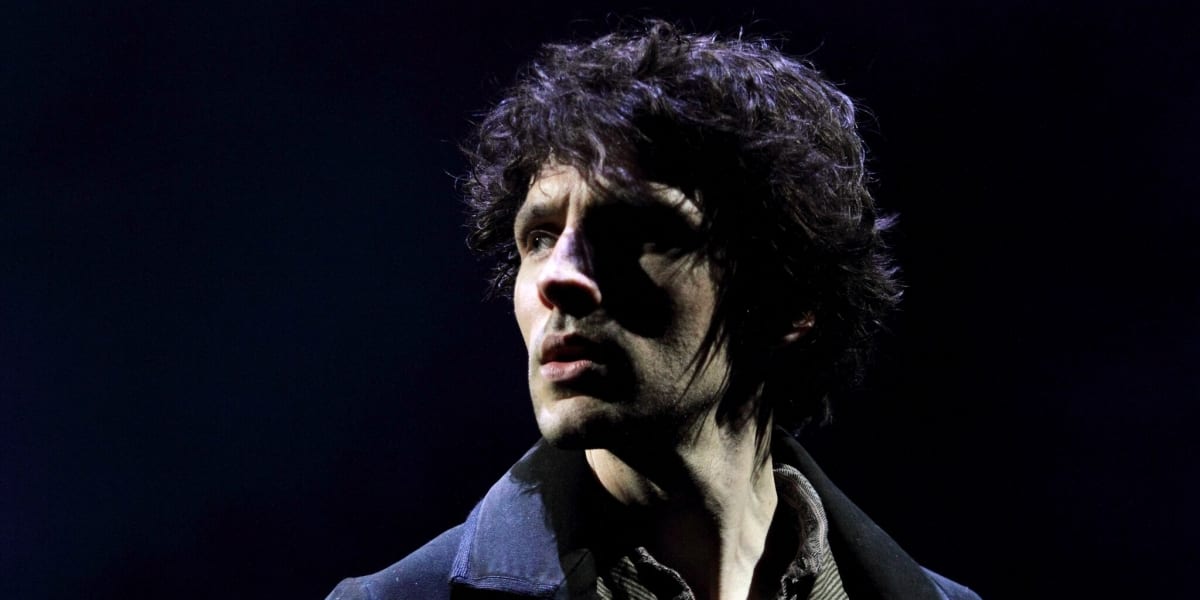The administrative task of creating an Ordnance Survey map of Ireland quickly descends into tragedy in Translations. Divisions between the Irish people and their English colonisers arise from the spark of shifting language values as Gaelic place names – often nonsensical, but always meaningful to those who grew up around them – are anglicised to suit the invading soldiers.

The set is a wonderful contrast – a warm, intimate schoolroom in the middle, surrounded by a barren, grassy, gloomy landscape that reflects the imposing shadows of change and modernity. Throughout, smoke eddies around the dusky lights which shift between greys and dark oranges to create broody shadows through which the soldiers appear from backstage to impose their clerical mania on the locals.
Their presence splits the community between those who embrace change and those who resist it. Owen, passionately played by Colin Morgan, returns home to Donegal from Dublin after six years with cartographically concerned members of the English army in tow. Much to the consternation of his nostalgically-minded father Hugh and other members of the community, he acts as a translator between English and Gaelic, assisting Captain Lancey and Lieutenant Yolland with creating new, English names for places in Donegal. Ciarán Hinds is a powerful and earnest presence as Hugh, a schoolteacher who understands the ramifications of his son’s work. He is accompanied by Dermot Crowley’s brilliantly dreamy portrayal of Jimmy – both of them attached to learning and quoting the likes of Ovid and Homer which the English, well-spoken, soldiers misunderstand as Irish.
Captain Lancey, captured perfectly by Rufus Wright, remains stiffly detached from the locals – establishing a sharp contrast to Lieutenant Yolland’s enthusiastic affection for the charming Irish language and countryside. Adetomiwa Edun imbues his character with an infectious vitality, though at times this comes across as slightly overplayed.

The inter-cultural love which blossoms between Yolland and Maire, poignantly brought to life by Judith Roddy, is short-lived and heart-breaking when he goes missing. This fires up the noxious split between the two cultures who cannot understand one another’s speech as Lancey forcefully wields his power to give an ultimatum for Yolland’s return, threatening to raze the surroundings.
Brian Friel’s most extraordinary achievement in this play is having people speak two languages whilst only being able to communicate to the audience in English. Accents help to provide a marker for the English and Irish tongues but Friel’s script, combined with Ian Rickson’s wonderful direction, establishes the divide that language creates between people.
The end leaves questions unanswered as to the future of the community, but this prompts the more disturbing realisation that it is clear what will happen under the oppressive fist of colonialism. The play gives an insight into the intricacies that shaped Anglo-Irish relations and the brutality that this clash of cultures triggered.

